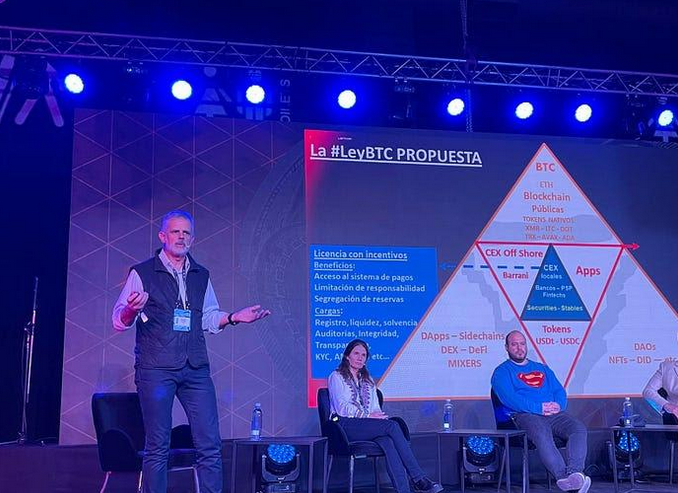CryptoGuard: Navigating Decentralization – A Blueprint for Trust in Argentina's Financial Horizon

The unveiling of Bitcoin Argentina's recent legislative proposal adds an intriguing chapter to the evolving narrative of cryptocurrency regulation. Positioned as a pivotal moment, the proposal aims not just to oversee the cryptocurrency market but to do so with a delicate balance that upholds the principles of decentralization while fortifying public trust in this dynamic and rapidly evolving financial landscape.
President Ricardo Mihura's presentation at the LABITCONF 2023 conference in Buenos Aires on November 10 signals a notable shift in the organization's perspective on regulation. This departure from their historical resistance is framed as a constructive response, one that seeks to preserve the essence of decentralization and concurrently address concerns related to trust and savings within the public domain.
The proposed legislation introduces a nuanced approach by categorizing cryptocurrency platforms into three distinct groups, each reflecting a different stance on property rights. The categories include decentralized platforms, locally centralized ones willing to engage in dialogue with authorities, and globally centralized entities. This thoughtful categorization lays the groundwork for a regulatory framework that acknowledges the diverse nature of platforms operating in the cryptocurrency space.
 Ricardo Mihura speaking at the cryptocurrency regulation panel at LABITCONF 2023. Source: LABITCONF.
Ricardo Mihura speaking at the cryptocurrency regulation panel at LABITCONF 2023. Source: LABITCONF.
For platforms falling under centralized categories, the proposal extends operational freedom, accompanied by a commitment to offer customers the "broadest possible judicial protection." This provision ensures that, in the unfortunate event of a company collapse, customers have a legal avenue to pursue damages.
A unique feature of the proposed framework is its hands-off approach to failures within decentralized platforms. This decision places the onus on the courts to meticulously assess the decentralization status when adjudicating claims from allegedly affected customers. It reflects a nuanced understanding of the intricacies involved in regulating decentralized technologies.
Mihura's stance against an outright ban on cryptocurrencies aligns with a broader acknowledgment of the global nature of blockchain technology. In asserting, "Even the United States cannot effectively prohibit the operation of the unlicensed cryptoeconomy," the proposal recognizes the limitations of top-down prohibitions in a landscape inherently resistant to geographical constraints. Argentina, grappling with its economic challenges and facing a staggering 121.7% annual inflation rate over the last 12 months, opts for a legal approach that seeks to provide citizens with the most effective protection in this globalized financial ecosystem.
As this proposed bill coincides with Argentina's upcoming presidential run-off election between Sergio Massa and Javier Milei, it introduces an additional layer of complexity to the evolving regulatory landscape. Against the backdrop of economic uncertainties, the proposed legislation stands as a testament to the organization's commitment to navigating the intricate web of cryptocurrency regulation, offering citizens a legal framework that strives for balance amid the complexities of the current financial climate.
Read more: Crypto Surge Chronicles: The ETF Frenzy and Short Squeeze Symphony

Trending



Press Releases

Deep Dives







